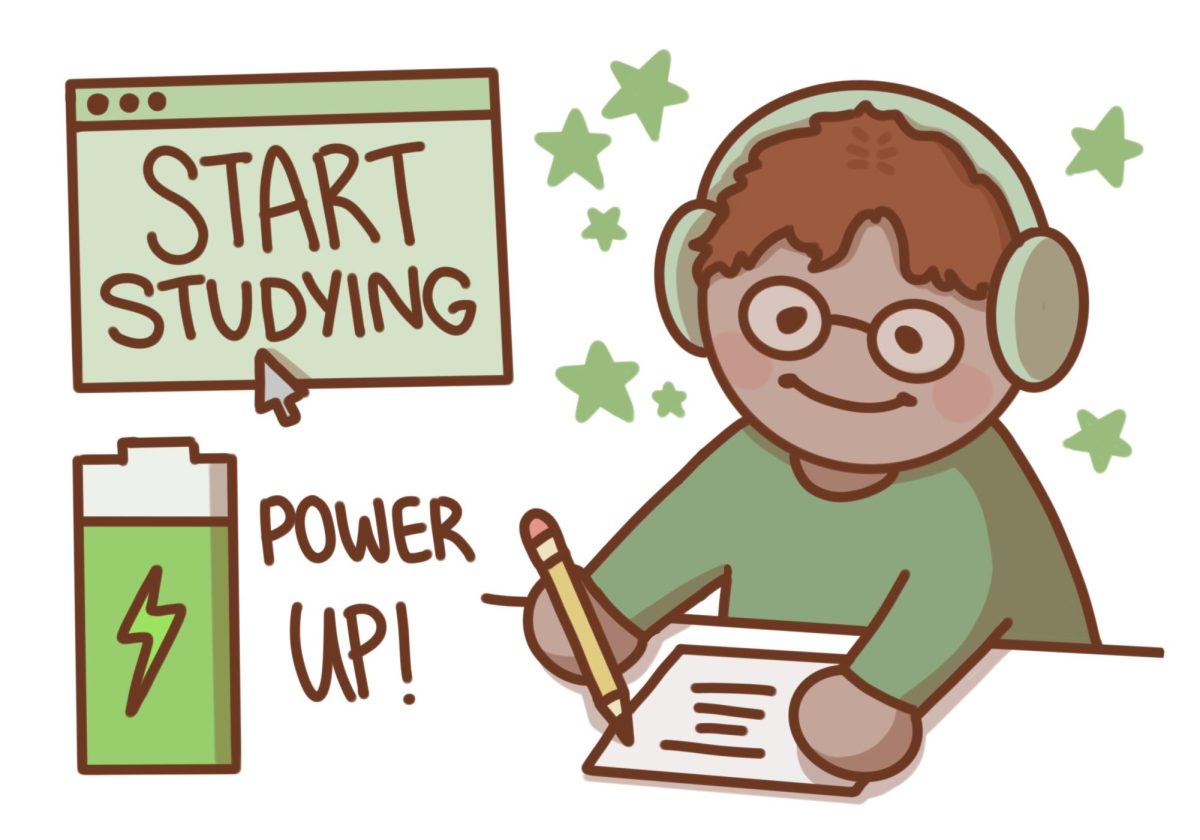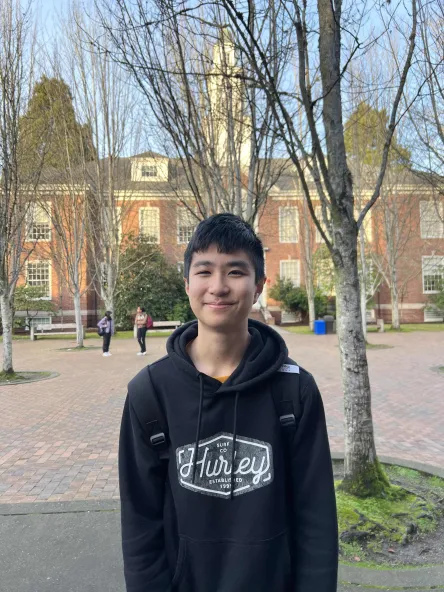School is starting up again, and with it comes the opportunity to build new routines. Let’s be honest: when people say they “study for hours,” it’s often five minutes of focused homework, then 30 minutes of scrolling reels. For this school year, it’s time to rethink our approach to studying.
Getting distracted is often a horrible experience: it’s a double gut punch. Constant interruptions or temptations prevent us from getting in the zone, decreasing productivity. And while we’re “having fun” on our phones, we’re still stressed about the looming 500-word essay.
The straightforward solution is to remove the distractions. A study by UT Austin found that “participants with their phones in another room significantly outperformed those with their phones on the desk.” Simply the presence of one’s phone, even when it is not in use, takes brain power away from studying.
Checking our phones can be even more harmful. According to a research paper by Journal of Occupation Health, it causes “resumption lag,” where an interruption forces the brain to redirect its attention. Each time a student checks their phone, it essentially resets their focus. To solve this, try placing devices in a separate room, effectively locking all temptations away. The reason why phones are so addictive is because they are easy to access. When we have to get up and walk to another room, checking our phone becomes less impulsive and more intentional.
The same principle applies to electronic devices. We can lock certain websites behind a “door” and make them harder to access by downloading a website blocker and disabling all of the distracting social media websites. Just being able to disable it with a click of a button may initially seem useless, but it works. By delaying our impulsive instincts just by a few seconds, we give ourselves valuable time to think about whether getting sucked into doom scrolling on cat videos is really the best use of our time, helping us make more rational choices.
This approach also works conversely: we should keep the things we need to study close. Creating an optimal environment beforehand — stocking tables with a few pencils, a glass of water, and maybe a charger — helps us stay in one place, preventing interruptions and keeping ourselves in the zone.
When it comes to distractions, it is important to address music. Some people find it disruptive, while many others study better with it in the background. Listening to music does help block out distractions and improve concentration for less stimulating and menial tasks, but for mentally stimulating tasks, it could have an opposite effect, taking away brain space.
According to a study from the University of Maryland, a general rule of thumb is to use music for repetitive tasks, organization, and artistic projects; don’t use music for reading, writing, or learning new topics. However, remember, like most of these suggestions, whether or not music helps with studying depends on the person. We just need to stay mindful. If we find ourselves dancing or singing along to a song, maybe it’s a good idea to turn it off or switch to a different song.
Routines are also important because they build on the Pavlovian principle. In one experiment, dogs were given food each time a bell was rung. After a few weeks of this routine, the dogs started salivating when the bell rang, even when no food was given. The same neurological principle applies to humans. Our brain tries to associate a connection between two stimuli, even if they are unrelated. By routinely receiving a specific stimulus before studying, we unconsciously and automatically establish this connection, and can put ourselves into study mode on command. That’s part of why it’s easier for a lot of people to study in a classroom setting, because they have been trained to concentrate in a classroom all their lives.
But you don’t have to go as far as dunking yourself in a bowl of Saratoga water to get yourself to study; all you need is just a simple yet consistent stimulus. Some effective pre-study routines include drinking tea, turning on the AC, eating candy, smelling a scent or meditating.
At the end of the day, everyone’s studying method is different, so experiment and see what works best for you. Remember that these strategies can make a real difference in your study routine and hopefully make studying easier this year.


